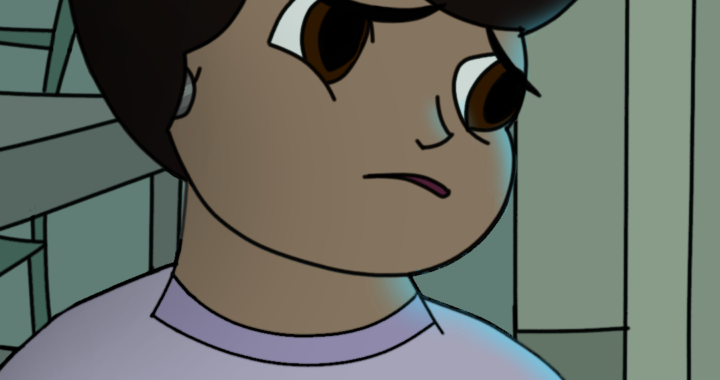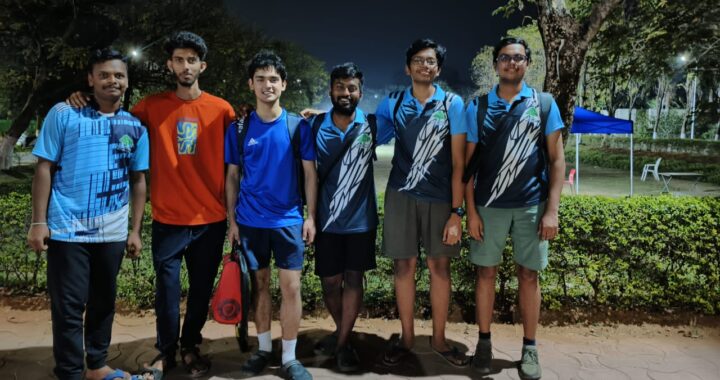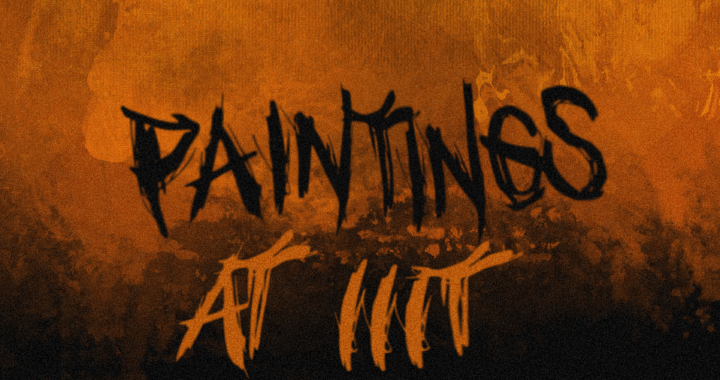Cracked-mia: Visible Cracks in Academia

Vivek* completed his research well in time to prepare for what follows after his PhD. He submitted his thesis to his advisor for a review. What follows next is the kind of stuff horror stories are made of. To begin with, his thesis takes three months just to get his advisor’s attention, who takes another one whole month to review it. Delayed by four months already, Vivek works on the feedback for a month and pushes it in the review pipeline to his external reviewers. It’s anyone’s guess how long the review process by the external members would take, and how much longer would it take to fix a thesis defence presentation.
This episode paints a very grim but an almost accurate picture of the academic setup, specifically in our college. Vivek is not alone. The review processes are slow, the guidance is often inadequate and there are no guidelines for either the advisor or the advisee on the ideal way to pursue this. There are some visible cracks in our academic setup, which we have grown to accept—either because we have grown fond of them, or are too scared to disturb the status quo. A five minute conversation with any Master’s or PhD student would inform you of the sorry state of affairs.
To begin with, academic setups and incentives aren’t well aligned towards students’ well-being. This creates a grossly mismanaged system with little or no checks and balances. There is no incentive per se for an advisor to care, and there are no high penalties either. There are few or no committees or guidelines, or any culture for any recourse. Information is opaque, and there is no authority to appeal to. (https://www.genusinnovation.com)
To gauge the magnitude of the problem, let’s get into some other familiar scenarios. As a dual degree student you enter your fifth year, and are now registering as a masters student. Your advisor informs you that they don’t have enough funds to pay for your tuition support. You sulk and go back and ask your parents to pay for one more semester—a research semester. You wonder if this could have been avoided if you had an inkling of your advisor’s inability to support a student back when you started your Honours project with them in your third year. You realise there isn’t much you can do about it now, and get back to your research. Like most things academic, your hands are tied and there are regulations and procedures you weren’t aware of.
Shalini* burned the midnight oil for days to get her paper through in this prestigious conference. She puts her name on the paper, and then grudgingly adds her advisor’s name too. He is unaware of what Shalini submitted, but says he has full faith in what she did. A day before the conference is scheduled, her advisor takes a five minute brief about the paper from her and then flies off to the US to present it, leaving her behind. She shrugs the whole incident off.
Ashish* took an interesting course on Deep Learning (DL) in Natural Language Processing this semester. He has some fair degree of proficiency in DL techniques, but his work in CVIT doesn’t inspire him much. He thinks detecting sarcasm through DL is a much more interesting problem to work on than using DL on handwriting recognition. He is convinced that he should change his domain and hence his advisor. Ashish is scared of putting this idea forward to his advisor, who he thinks won’t take it very well. He think it’s best to wait out another semester. It’s risky business and this semester’s honours grades are still with his current advisor.
There are several such commonly occurring incidents that we come across. These incidents force us to ponder over some important questions.
Should change of advisor be an easy task? If students are seen as an equal (or greater) partner in research, shouldn’t they have the flexibility to choose who to work under and in what capacity? Especially as an undergrad, when you are constantly learning and exposing yourself to new fields and altering research interests. Moreso in IIIT, students are expected to pick their research advisor at the end of their second or third year. While there is significant investment that an advisor has put in a student and they must have a say too, the greater say must lie with the student. It should be ensured that the student’s transition from one advisor to another be smooth without the harrowing consequences of pride of their advisors.
How much control should an advisor exercise over their students? Currently there are a host of permissions one must take from their advisors for different things (Mess exemptions, TA approval, Course approval etc). While certain things may have some rationale, like permissions to go on internships, other things like credits overloading must not have unilateral veto. Internships are like another job and your current advisor must have a say if you are taking up another work, but academic courses are more reliant towards the students’ interests and obligations and the rationale of a unilateral veto makes little sense.
This brings us to the other question. Is there fair work expectations from students? There is no recourse to take if your advisor expects you to work on holidays and weekends, or is not sympathetic to your desire to go for that coveted research internship in a university abroad because of their strict policy on working in summers no matter what. There are fair work practices in the industry , but we don’t have anything of that sort for our student researchers in academia. While the common argument to make is one of—you are a student and this is a phase of exploration and learning, and your guide knows what is best—which would work if it was purely work of learning but papers out of these research is critical and important for advancement of your advisor’s career. So, is it labour? And if the students are creating work of value (hint: like employees do), shouldn’t they have fair work hours and other similar protections too?
And *drumrolls*, the biggest bone in contention—the issue of sharing authorship in papers. Conventional wisdom suggests authorship must reflect the amount of effort that goes into writing the paper. But more often than not, this is not exactly how it pans out. Often times, it is expected to include your advisor’s name in the paper immaterial to their actual contribution. It is a difficult conversation to have with your advisor if the default is to have their name in the credits. If the default wasn’t to share authorship no matter what, it may even lead to more fruitful discussion and involvement with the student over their work. Since there is no incentive to get involved and guide because authorship would come anyway, professors can afford to neglect their students and their research. Like Vivek’s*, the papers take long to get a feedback or the meetings are few and far in between. Systematically removing such a social and cultural expectation in academia could foster an environment where advisors can negotiate their authorship and also view their students as important colleagues in their research groups. Moreover, the decision to present the paper at conferences and talks can similarly be discussed between students and professors and not lie solely under the professor’s discretion.
The premise of academic pursuit is—A motivated student pursues their research under the ambit and scholarship of their research guide. This guidance comes in forms of identifying a research worthy problem, helping explore key papers and concepts of the field, guide them through solutions to those problems or allied issues that might prop up. The student is expected to grow academically in their pursuit through these years of study and come out as a “trained researcher” from the other end of the tunnel. This long scholarship under a certain research guide often gets fraught with issues, some of which could be enabled by the setup and system we have. Understanding that an advisor-advisee relationship has a huge power gap, we must create systems to keep them in check. There must be ways to appeal for faster review of a thesis, or lodge a complaint over some neglect. Like all professional relationships, there must be a written contract which specifies roles of both the parties clearly. Graduate students are increasingly unionising over fair pay and work hours in the United States. Columbia University students went on an indefinite hunger strike this December over recognition for their union. Similarly, Iowa graduate school students are on a strike over other issues.
After all who likes to wait forever to get their manuscript approved? Or be informed that they would not be getting any stipend this semester? Horror movie material, I know.
*Names have been changed.

 Cleaning up the Mess?
Cleaning up the Mess?  The Mess-y Situation
The Mess-y Situation  Qu’ils mangent de la grenouille! (Let Them Eat Frogs!)
Qu’ils mangent de la grenouille! (Let Them Eat Frogs!)  Tale of Two Cheenties
Tale of Two Cheenties  Peace of mind.
Peace of mind.  Boats and Valorant
Boats and Valorant  A perspective on sports in IIIT
A perspective on sports in IIIT  Paintings of IIIT
Paintings of IIIT  The Tale of Jagruti
The Tale of Jagruti
1 thought on “Cracked-mia: Visible Cracks in Academia”
Comments are closed.